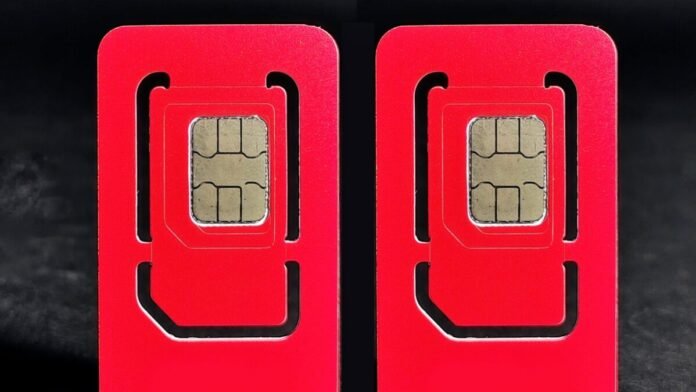
Key Points:
- Aadhaar-based biometric verification is now mandatory for all new SIM card purchases.
- Telecom companies must verify the number of SIMs linked to an individual and conduct multi-level checks.
- Strict penalties, including blacklisting and bans, will be imposed on violators using fraudulent SIM cards.
- Over 2.5 crore fake SIM cards have already been deactivated as part of the government’s crackdown.
- These measures aim to curb cybercrime, protect users, and enhance digital security.
New Delhi: In a bid to combat the alarming rise in cyber fraud and misuse of mobile connections, the Indian government has introduced stringent new regulations for issuing SIM cards. The Department of Telecommunications (DoT) has mandated telecom companies to implement a Digital Integrated Verification System (DIVS), which will ensure that no SIM cards are issued using fake or forged documents. These measures are part of a broader effort to secure India’s digital infrastructure and protect citizens from online fraud.
What’s Changing in the New SIM Card Rules?
The new rules make it significantly harder to acquire a SIM card without thorough identity verification. Here are the key changes:
- Mandatory Aadhaar-Based Biometric Verification:
- Customers must now undergo biometric authentication linked to their Aadhaar card for new SIM activations.
- Retailers are prohibited from issuing SIM cards without completing this process.
- Multi-Level Verification:
- Telecom operators must check how many SIM cards are already registered under an individual’s name.
- If someone applies for a SIM under a different name, additional scrutiny will be conducted.
- Advanced Photo Verification:
- Photos of customers will be captured from ten different angles to prevent identity fraud.
- Cap on SIM Cards Per Individual:
- A maximum of nine SIM cards can be issued per ID. Bulk issuance is restricted to businesses with proper documentation.
- Cooling-Off Period for Deactivated Numbers:
- Deactivated numbers cannot be reissued for 90 days, reducing the risk of misuse.
Why the Crackdown on Fake SIM Cards?
Fake SIM cards have been a major enabler of cybercrimes such as financial fraud, phishing scams, and identity theft. Investigations revealed that criminals often use multiple fraudulent SIMs linked to a single device, making it difficult for authorities to track illegal activities. To address this issue:
- The government has already deactivated over 2.5 crore fake mobile connections.
- AI-driven tools are being used to identify suspicious patterns in SIM issuance and usage.
- Telecom operators have been instructed to work closely with law enforcement agencies.
Penalties for Violators
To ensure compliance, strict penalties have been introduced:
- Individuals found guilty of using fraudulent SIMs will be blacklisted and banned from obtaining new connections for six months to three years.
- Retailers issuing SIMs without proper verification face fines up to ₹10 lakh and potential imprisonment.
- Telecom operators failing to comply with these rules could face severe legal consequences.
How Will These Measures Enhance Security?
The new rules aim to make mobile networks safer by eliminating fraudulent connections and enabling better tracking of users. Key benefits include:
- Reduction in Cybercrime: With stricter verification processes, cases of banking fraud, phishing scams, and spam calls are expected to decline significantly.
- Improved Accountability: Linking every mobile connection to a verified identity ensures that offenders can be easily traced.
- Enhanced Public Trust: By securing mobile networks, the government hopes to restore user confidence in telecom services.
A Step Towards a Safer Digital India
While these rules may seem cumbersome at first glance, they represent a crucial step in safeguarding citizens against cyber threats. The government’s proactive measures ranging from mandatory biometric verification to AI-powered fraud detection are expected to transform India’s telecom landscape into a more secure and transparent ecosystem.
As part of its broader “Digital India” initiative, these reforms not only aim to curb cybercrime but also lay the groundwork for a safer digital future where users can trust their mobile connections without fear of misuse.






































